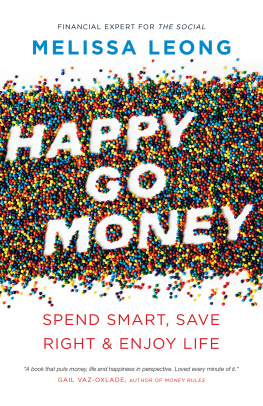Nancy Leong - Identity Capitalists
Here you can read online Nancy Leong - Identity Capitalists full text of the book (entire story) in english for free. Download pdf and epub, get meaning, cover and reviews about this ebook. year: 2020, publisher: Stanford University Press, genre: Politics. Description of the work, (preface) as well as reviews are available. Best literature library LitArk.com created for fans of good reading and offers a wide selection of genres:
Romance novel
Science fiction
Adventure
Detective
Science
History
Home and family
Prose
Art
Politics
Computer
Non-fiction
Religion
Business
Children
Humor
Choose a favorite category and find really read worthwhile books. Enjoy immersion in the world of imagination, feel the emotions of the characters or learn something new for yourself, make an fascinating discovery.

- Book:Identity Capitalists
- Author:
- Publisher:Stanford University Press
- Genre:
- Year:2020
- Rating:5 / 5
- Favourites:Add to favourites
- Your mark:
- 100
- 1
- 2
- 3
- 4
- 5
Identity Capitalists: summary, description and annotation
We offer to read an annotation, description, summary or preface (depends on what the author of the book "Identity Capitalists" wrote himself). If you haven't found the necessary information about the book — write in the comments, we will try to find it.
Identity Capitalists — read online for free the complete book (whole text) full work
Below is the text of the book, divided by pages. System saving the place of the last page read, allows you to conveniently read the book "Identity Capitalists" online for free, without having to search again every time where you left off. Put a bookmark, and you can go to the page where you finished reading at any time.
Font size:
Interval:
Bookmark:

IDENTITY CAPITALISTS
The Powerful Insiders Who Exploit Diversity to Maintain Inequality
Nancy Leong
STANFORD UNIVERSITY PRESS
Stanford, California
STANFORD UNIVERSITY PRESS
Stanford, California
2021 by the Board of Trustees of the Leland Stanford Junior University.
All rights reserved.
No part of this book may be reproduced or transmitted in any form or by any means, electronic or mechanical, including photocopying and recording, or in any information storage or retrieval system without the prior written permission of Stanford University Press.
Printed in the United States of America on acid-free, archival-quality paper
Library of Congress Cataloging-in-Publication Data
Names: Leong, Nancy, author.
Title: Identity capitalists : the powerful insiders who exploit diversity to maintain inequality / Nancy Leong.
Description: Stanford, California : Stanford University Press, 2021. | Includes bibliographical references and index.
Identifiers: LCCN 2020020328 (print) | LCCN 2020020329 (ebook) | ISBN 9781503610132 (cloth) | ISBN 9781503614277 (epub)
Subjects: LCSH: Group identityUnited States. | Cultural pluralismUnited States. | ExploitationSocial aspectsUnited States. | ExploitationEconomic aspectsUnited States. | MinoritiesUnited StatesSocial conditions. | DiscriminationLaw and legislationUnited States.
Classification: LCC HN59.2 .L466 2021 (print) | LCC HN59.2 (ebook) | DDC 305.800973dc23
LC record available at https://lccn.loc.gov/2020020328
LC ebook record available at https://lccn.loc.gov/2020020329
Cover design: Rob Ehle
Cover background: iStockphoto
Text design: Kevin Barrett Kane
Typeset at Stanford University Press in 11/15 Adobe Garamond Pro
To Scott
Contents
Introduction
GETTING USED
THE ENVELOPE IN MY MAILBOX, lettered in delicate calligraphy, was a surprise. A decade had passed since my college friend and I had been close. Our communications in recent years had mostly taken the form of brief messages on social media. Still, Ive learned that people do funny things when theyre getting married. I marked off will attend on the little card and found myself a date and a dress.
It was a beautiful ceremony and reception; indeed, with only sixty people or so in attendance, I was both surprised and honored to be included at a relatively intimate event. Late in the dayafter wed heard toasts, after wed eaten cake, after shed downed several glasses of champagnemy friend threw her arms around me. I am so glad that you could come tonight, she said, glowing with happiness. And then: I mean, if you hadnt been hereshe lowered her voice a little and gestured around the room with a self-deprecating laugheveryone here would have been white. And then she waved the photographer over to take a picture of us together. A few days later she posted it on Facebook.
I have a copy of that picture. Were smiling like any two longtime friends at a celebration. But the photo also captures a moment when something changed. At the time, I didnt tell my friend that I found her comment off-putting. I couldnt bring myself to cast the slightest shadow on her wedding day. At the same time, I was no longer nearly so surprised, nor nearly so honored, to have been included in the guest list. I realized that I was not at the wedding solely in my capacity as an old friend. I realized that my friend valued my presence for other reasons. I realized that I was part of the color scheme, just like the bridesmaids dresses and the flowers on the tables. I realized that when my friend thought of me, she saw a particular kind of opportunityand she capitalized on it.
The drive back to my hotel that night marked the moment that I first named identity capitalism to myself. I had noticed this sort of behavior before: the way someone accused of sexism would immediately talk about his devotion to his daughters, or the way a colleges website inevitably features a lot of photos of people of color, or the way a company sued for sex discrimination would point to its female executives. But that night was the first time that I saw these disconnected observations as pieces of a puzzle that, when put together, formed a larger picture.
When I looked at the big picture, I saw people of one identity group trying to benefit from the identity of another group. White people trying to benefit from people of color. Men trying to benefit from women. The beneficiaries were generally the ingroupthe group that controlled power and resources. And the source of the benefit was always the outgroupthe group, often a numerical minority, without access to the ingroups power and resources.
Ingroup members already get a lot of benefit from their own identities. A brief in the famous Supreme Court case Plessy v. Ferguson, which upheld state-sanctioned racial segregation, argued that whiteness was the most valuable sort of property.doing business. People with white-identified names receive better mentorship in school and more job opportunities after school. Society perceives white people as more intelligent, more competent, more reliable, and more attractive.
Whiteness provides countless advantages, and, perhaps unsurprisingly, it turns out that one is the opportunity to benefit from nonwhite people. Having a nonwhite person around can, for example, enhance a white persons social status. Many white people want to seem cosmopolitan and most very much want to avoid seeming racist. Having a nonwhite friend is one solution. Although I doubt she spelled it out to herself quite so explicitlyat least not until after the champagneI am sure this is at least part of the reason my long-ago friend wanted me at her wedding.
This behavior isnt limited to race. It might also extend to gender, sexual orientation, disability status, or other identity categories. In each case, the identity ingroupmen, straight people, the non-disabledcan benefit in certain ways from those outside their identity group, who are often members of historically disempowered groups. These benefits can take many forms: economic, social, political, or even simply psychological. Sometimes an ingroup member wants to achieve social status, like my friend at her wedding. Other times the ingroup member wants to refute a claim of bigotry: I cant be racist (or sexist, or homophobic) if I have a friend who is Latino (or a woman, or gay).
And the effort to benefit from outgroups is not limited to individual behavior. Institutions controlled by an ingroup also benefit from individuals not part of the ingroup. Colleges and universities enhance their appeal to prospective students by featuring members of outgroups in their promotional materials. Businesses hoping to attract clients or customers showcase outgroup employees on their websites or outgroup models in their pitches. Politicians attempting to broaden their appeal seek outgroup surrogates or feature outgroup members in their advertisements.
These efforts by ingroup members to benefit from outgroup members are examples of what I call identity capitalism, and ingroup members who profit from outgroup identity are identity capitalists. This book takes a hard look at identity capitalists. It examines the motivations and tracks the consequences of identity capitalism: for identity capitalists themselves, for other ingroup members, for members of outgroups, for institutions, and for society as a whole.
Identity capitalists are everywhere. Some are ordinary people going about their daily lives. Others are famous politicians, entertainers, CEOs, and public intellectuals. One prominent identity capitalist is Donald Trump, the forty-fifth president of the United States. Trump is a consummate ingroup member: a heterosexual white man born into great wealth and social status. Even among politiciansmany of whom are notable identity capitalistsTrumps behavior stands out. In 2015, then-presidential candidate Trump addressed a black man in the audience by saying, Look at my African-American over here. He then told a story designed to demonstrate that he had substantial support among black people. His message was clear: black people support me, check it out, theres even one right here at my rally. Yet Trumps disapproval ratings among black people typically hover in the 80 percent range, and only 6 percent of black voters cast a ballot for Trump in the 2016 presidential election. This disapproval reflects Trumps statements and policies as president. On issues ranging from his fondness for Confederate monuments, to his disapproval of black football players kneeling to protest police violence, to his insistence that white supremacists in Charlottesville are very fine people, his administration has offered virtually no concrete support for issues important to a large percentage of black people.
Font size:
Interval:
Bookmark:
Similar books «Identity Capitalists»
Look at similar books to Identity Capitalists. We have selected literature similar in name and meaning in the hope of providing readers with more options to find new, interesting, not yet read works.
Discussion, reviews of the book Identity Capitalists and just readers' own opinions. Leave your comments, write what you think about the work, its meaning or the main characters. Specify what exactly you liked and what you didn't like, and why you think so.





